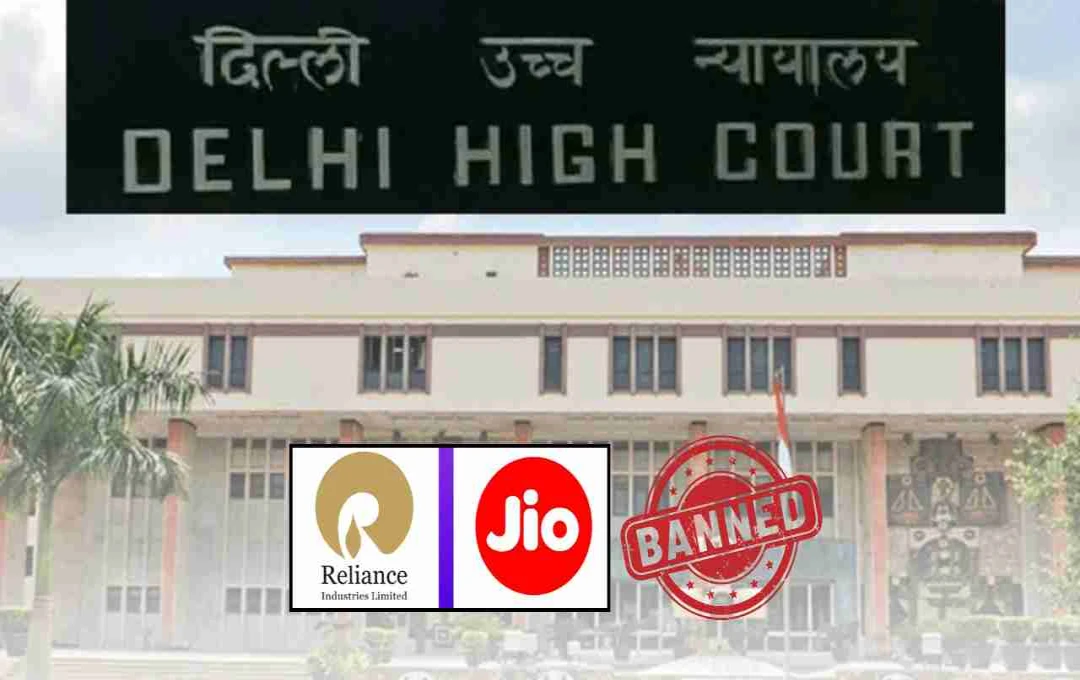The Delhi High Court, taking a strict stance against e-commerce companies, has ordered Amazon, Flipkart, and several other online platforms to stop the sale of products that falsely use the names and logos of Reliance and Jio. Justice Saurabh Banerjee, in a single-judge bench, passed this order while hearing a petition filed by Reliance Retail Limited and Reliance Jio Infocomm Limited.
The court clarified that the brand names or logos of Reliance and Jio cannot be used on any product that has not been officially manufactured or approved by the company. According to the High Court, such products, which mislead consumers, directly harm consumer rights and brand reputation.
Misuse of consumer trust through fake branding

Reliance's petition alleged that several vendors were selling products under the names of Reliance and Jio through e-commerce sites, which had no connection with the company. The petition stated that these vendors were presenting the popular brand names, logos, and designs of Reliance and Jio in such a way as to mislead consumers into believing that the products came from the Reliance group itself.
The petitioner objected to the sale of Fast Moving Consumer Goods (FMCG) on online platforms by using the brand name without the company's permission, which was not only harming the brand but also confusing customers.
Brand names and logos facilitate customer identification
Justice Saurabh Banerjee said in his order that in this era of e-commerce, consumers assess the quality and validity of a product based on the brand name and company logo. In such a situation, if fake or look-alike products are sold on the marketplace, it is akin to deceiving consumers.
The court emphasized that if a customer buys a product by trusting the reputation of a company and does not get the promised quality, not only does the consumer suffer a loss, but the reputation of the original brand is also tarnished.
Responsibility determined for e-commerce companies
The court expects Amazon, Flipkart, and other online marketplaces to monitor the products sold on their platforms and ensure that the name or trademark of any established brand is not violated.
During the hearing, it came to light that products resembling "Reliance", "Jio", "JioMart" were being sold rampantly on online shopping sites, which also copied the authorized logo, packaging, and design of Reliance.
Court upholds Reliance's arguments
In the petition, Reliance stated that they had already legally secured protection for their trademarks "Reliance" and "Jio" and that despite this, their names were being misused on online platforms.
The company also said that many times, customers are not even aware that the product they have purchased is not genuine. This affects the brand value of the company and also breaks the trust of the customers. The Delhi High Court found Reliance's arguments justified and said that under the Trademarks Act, any company has the right to prevent the misuse of its brand name and logo.
Ban on every fake product from now on

The court, in its decision, not only banned the sale of products but also ordered a ban on the manufacturing and advertising of such products. This order means that now, no vendor, whether online or offline, will be able to sell any product using trademarks resembling "Reliance" or "Jio".
Furthermore, the court also directed that if any person or entity violates this order, appropriate legal action can be taken against them.
Importance of trademarks in the growing influence of e-commerce
E-commerce has expanded rapidly in the digital age. Millions of customers shop daily from platforms like Amazon and Flipkart. In such a situation, if the name and logo of a brand are printed on a fake product, the customer cannot identify it and buys it assuming it is the genuine product.
This trademark infringement against a large company like Reliance shows how serious the problem of fake branding has become in the market.
This decision of the Delhi High Court is considered important not only for brand protection but also sets a major example regarding consumer rights.















